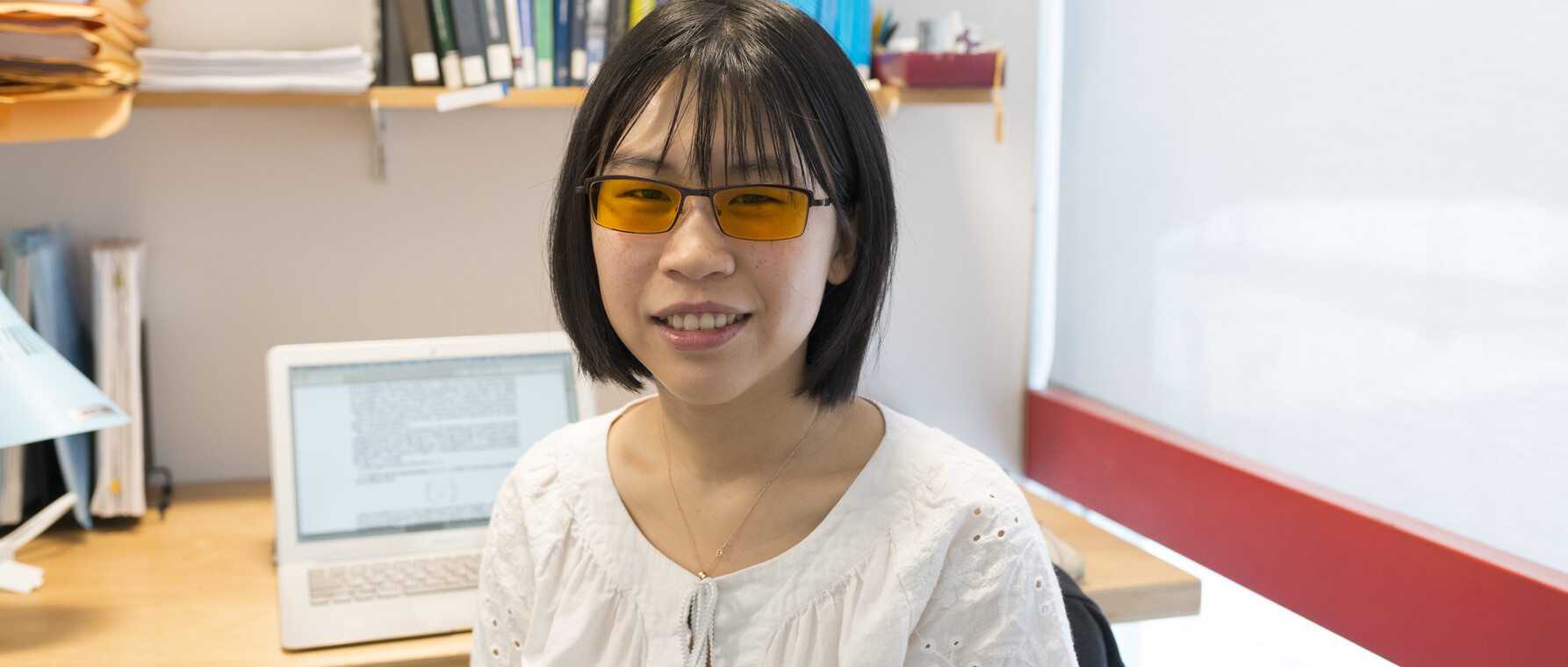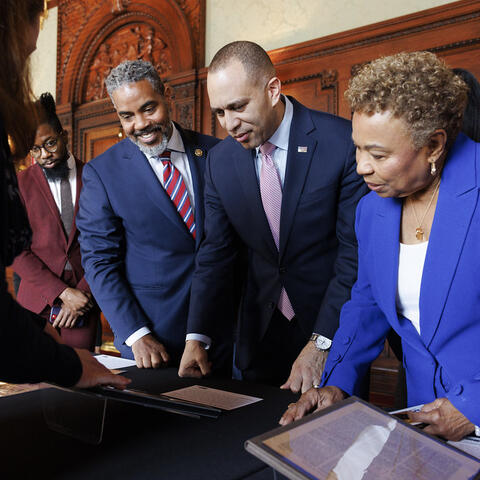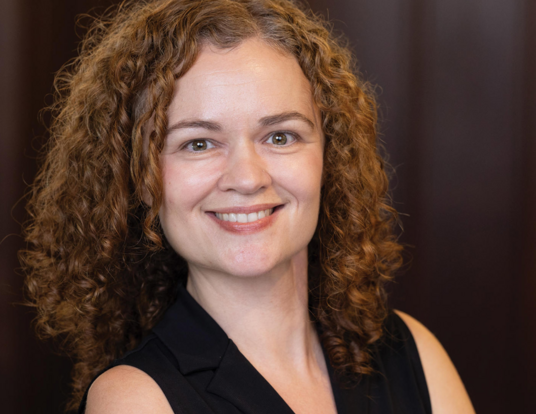Building Confidence as a Teacher
Chi-Yun Hsu, recipient of the 2018 Derek C. Bok Award for Excellence in Graduate Teaching of Undergraduates

Every year, hundreds of Harvard undergraduates stream into math courses offered by the Department of Mathematics. Whether learning linear algebra or calculus, they can turn to the teaching fellows (TFs), who are the chief instructors for these courses, when they hit stumbling blocks. While TFs play an important role in the education of Harvard undergraduates, the name belies the true nature of this role. TFs live double lives, as both teachers and students. This duality is particularly prominent for Chi-Yun Hsu, a PhD student in the Department of Mathematics and a recent recipient of the Derek C. Bok Award for Excellence in Graduate Teaching of Undergraduates.
A Wealth of Resources
Very few graduate students arrive on campus with any teaching experience. While Hsu had led problem sessions in her native Taiwan, she knew that helping students work through problem sets was very different from teaching and began looking for opportunities to learn more. “At Harvard, there are a lot of resources that you can choose to absorb or let go,” she explains. Choosing to absorb them, Hsu quickly took advantage of the opportunities offered to future TFs.
One of the first teaching classes Hsu took was “Classroom Communication Skills for International Teaching Fellows” (now the Professional Communication Program for International Teachers and Scholars) offered for international graduate students, teachers, and scholars by the Derek Bok Center. “Because my TOEFL speaking score was not high, I had to take a class that focused on both English and teaching skills,” Hsu explains. There she learned to articulate her thoughts, striving to make sure her audience could comprehend what she was saying. At the same time, Hsu was also taking “Teaching Undergraduate Mathematics,” a pedagogy course offered by the Department of Mathematics, in which she learned different teaching philosophies and focused on the math that she would eventually teach as a TF.
Between the Bok Center and the pedagogy course, Hsu had ample opportunities to hone her nascent teaching skills. “We practiced micro-teaching, where we pick one small clip of the course and teach it to our peers or volunteering undergraduates,” Hsu says, describing one such opportunity. “We then went to the real class to see how senior graduate students or preceptors teach the same material.”
Since her days of micro-teaching, Hsu has gone on to teach three math courses at Harvard. It was halfway through her third course in fall 2017, Math 21B, “Linear Algebra and Differential Equations,” that she finally felt confident in her teaching abilities. “Before, I was too conscious of myself, focusing on how to present in a way a ‘good’ teacher would,” Hsu says. “Now, I’m more concerned with making sure students understand the material and adjusting my teaching to their feedback.” Her students responded to this approach by awarding Hsu a Q score of 4.7, which only the most experienced TFs of Math 21B receive.
Hsu’s success teaching Math 21B also led GSAS to reward her work with the Derek C. Bok Award for Excellence in Graduate Teaching of Undergraduates. “I appreciate all the resources provided to me, and I’ve learned a lot from the preceptors, the Bok Center, and my peers,” she says. “I incorporated all of these things into my teaching, and this is the result.”
How to Study Infinity
In Math 21B, Hsu found herself teaching the mathematical ideas that appear in her own thesis work. According to Hsu, students are always happy to hear that the math they are studying is part of a TF’s research. Though, she confesses, the content she teaches her students is only the first step in making sense of the mathematical problems she’s trying to solve.
Hsu is interested in number theory, that is, the study of integers—more commonly known as whole numbers, such as 3 or 2,100. “One of the goals in number theory is to find integer solutions for equations,” Hsu says. For instance, even though the equation x2 –2=0 has two possible solutions for x—specifically x=±√2—neither solution results in an integer because the square root of 2 equals 1.41421356237, an irrational number. However, if this particular equation is used to solve a real world problem, such as determining the most optimal bus schedule for a specific route, an integer solution is required since there is no such thing as 1.414 buses. This is where number theory comes in.
To look for integer solutions, mathematicians like Hsu change the way the information is encoded, working instead with what they call its modular form, a sort of avatar of the original equation. “Our example equation is in an algebraic form and has to be solved using algebraic techniques, but when we transform it into its modular form we are able to look for a solution using analytic techniques, such as calculus,” explains Hsu. While historically algebra and analysis have been viewed as two separate entities, mathematicians recently found connections between the two. For Hsu, this newfound bridge between the two mathematical realms is one of the most fascinating aspects of her research.
The purity and absoluteness of math is what first attracted Hsu to the field. In elementary school, she found lab experiments clumsy and messy, with hypotheses in constant change as new data arose. Compared with the experimental sciences, math is clean. “If a mathematician proves rigorously that a certain mathematical statement is correct, then, even after 1,000 years, it will still be correct,” she explains. For Hsu, math is a game in which every participant has agreed to the same set of rules. “As long as you agree with those first few rules, you will agree with the later results,” she says.
The Student Becomes the Fellow
This year, Hsu will not teach undergraduates. Instead, she’s been appointed the pedagogy fellow in the continued from page 1 Department of Mathematics, working with newly arrived graduate students in the same pedagogy course that was so helpful to her when she was a first-year graduate student. “I’ll be serving as a resource for students who want to be observed, especially if they are new to teaching and want to improve,” Hsu says. “And I might also have to give suggestions to those who are not as willing to be observed.”
The ability to improve is something that Hsu always emphasizes when she talks about teaching, using herself as a prime example. “My Q score was really bad for my first course,” she says. It was after receiving her 4.7 Q score for Math 21B that she saw that the work she had put in over the last three years had paid off. “I believe teaching is something that, if you put in the effort, you can achieve success,” she explains, before joking that this is not always the case with math.
And for the less outgoing TFs who worry that they’re not funny enough to teach? Hsu recommends a technique she learned from her peers, one that she continues to use. “Imagine that you have a switch that you turn on when you go into class,” she says. “When it’s on, you become more outgoing, more enthusiastic, even though deep down you’re not really that person. You only need to be that person for one hour, and, if you make an effort, that is doable for most people.”
Photo by Molly Akin
Get the Latest Updates
Join Our Newsletter
Subscribe to Colloquy Podcast
Simplecast



